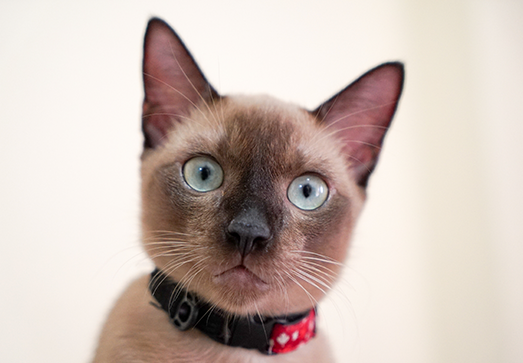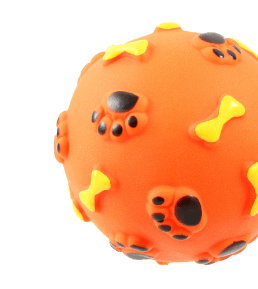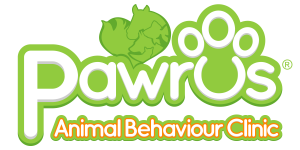
“Positive Scientific Solutions™” – Evidence-Based Animal Behaviour.

Currently in Singapore, most behaviour cases can be seen by anyone who call themselves a pet trainer or behaviourist without having to meet any licensing and/or experience requirements. Even then, some of these training techniques can be harmful to your pet or worsen pre-existing behaviour problems. In many of these cases, these approaches are neither used appropriately nor backed by science.
At the end of the day, not only are these issues unresolved, but in certain scenarios, the animal and the people who are caring for them are left far worse off than before. In addition, most behaviour cases are usually seen by a single animal training professional with most solutions proposed narrowly – sparing little thought for the long-term behavioural ramifications that erupts from the issues that they have been tasked to resolve.

Our Pedagogy
Based on decades of scientific consensus, the examination of an animal’s behaviour has been conclusively determined to be a unique study of one and not a generic study of many. We now know that in terms of proportion, animal behaviour is heavily influenced by genetics first, learning second and lastly, the environment.
This means that a significant proportion of the behaviour of an animal is already decided prenatally (i.e. before birth).
Also, as behaviour is constantly changing in accordance with the form, quantity and intensity of the variables influencing it, we must be prepared to consistently monitor and track our treatment plans to ensure that our desired objectives are attained with due consideration of these unique circumstances.



Why Us?
Pawrus® Animal Behaviour Clinic was established to provide a full-spectrum approach towards behaviour issues and address the root causes of issues afflicting animals and the people who care for them with positive, scientific and evidence-based solutions.

We are the first and only referral-exclusive clinic in Singapore to be specialised in the management, treatment and rehabilitation of animal behaviour using positive, scientific and evidence-based methods. The clinic is led by Principal Clinical Animal Behaviourist Kevin Yeo, who is currently working towards certification as an Certificated Clinical Animal Behaviourist (CCAB).
What is an Animal Behaviourist (AB)?
An Animal Behaviourist (CCAB/(A)CAAB) identifies the underlying emotion for your pet’s behaviour and helps both the pet and owner to feel more confident around whatever trigger it may be. Subsequently, they are responsible for analysing why your pet is engaging in unwanted behaviors in order to develop custom, and at times novel, behavior intervention programs. Often, this is likened to mental health professionals in humans, whereby a professional will help you to work through your emotional response to various triggers, an animal behaviourist provides a similar service for your pet. Animal Behaviourists have completed extensive graduate work in the science of animal behavior, earning a PhD / MSc. In order to become certified, they must also pass rigorous oral and written exams, published articles in scientific journals, and meet the coursework and hands-on experience requirements.
What is a Veterinary Behaviourist (VB)?
Veterinary Behaviorists (ECAWBM/DACVB) have achieved board-certification in the specialty of Veterinary Behavior. Board-certified specialists are known as Diplomates. Specialists in veterinary behavioral medicine have both the medical and behavioral knowledge to evaluate cases to determine if there is a medical component. A Veterinary Behaviorist is in a unique position to diagnose medical conditions that can affect a pet’s behavior, as well as treat conditions that are purely behavioral. Veterinary Behaviorists are licensed veterinarians who have graduated from a recognized college of veterinary medicine and completed at least one year of internship or primary care practice. They have also undergone additional behavior-specific training which includes years of case supervision by an established Diplomate, conducting original behavior research which earns publication in a peer reviewed journal, authored formal case reports that were approved by a review committee of Diplomates, and passed rigorous Board Examinations.
What is the difference between an Animal Behaviourist (AB) and a Veterinary Behaviourist (VB)?
Both an Animal Behaviourist (AB) and a Veterinary Behaviourist (VB) will have received training at Graduate level regarding how to support you and your pet. The key difference between a AB and VB is the medical element. While ABs and VBs often have similar or identical behavioural training, VBs are also registered veterinary surgeons. Think of VBs as psychiatrists of the animal world, with the ability to legally diagnose medical conditions and prescribe potential medical treatments (such as behavioural medications), by law, this is not something an AB can do. Thus, if a VB is like a psychiatrist, a AB is like a psychologist, with the ability to examine and analyse various behavioural manifestations of medical conditions and liaise with your pet’s GP veterinarian.
What is a Behaviour Consultant?
Behavior consultants are advanced trainers who have had extensive experience working with severe behavior disorders. Most have extensive education in ethology (scientific knowledge of species-specific behavior), welfare, and applied behavior analysis, usually up to Bachelor, Associate or Diploma level. Behaviour consultants commonly work as skilled technicians on the ground as part of a behaviour team, assisting in implementing the behaviour intervention plans designed by the ABs and/or VBs leading the behaviour case.
Our Workflow
In the UK and US, there are a handful of professionals who are qualified as both a VB and an AB. There are even fewer individuals who are double-boarded as either a VB or AB in both UK and US, and these professionals are highly regarded as the best in the field of animal behaviour.
Our Behaviour Clinic forwards all cases requiring psychopharmacology to Veterinarians with Special Interests in Behaviour Medicine, Residents of Clinical Behavior Medicine and Veterinary Behaviourists (VBs).
Cases beyond our expertise will be referred out to other professionals with the following certifications:
- Diplomate American College of Veterinary Behaviourists, DACVB, The American College of Veterinary Behaviorists (ACVB)
- Diplomate European College of Animal Welfare and Behavioural Medicine, DECAWBM, The European College of Animal Welfare and Behavioural Medicine (ECAWBM)
- Fellow Australian and New Zealand College of Veterinary Scientists Veterinary Behaviour Chapter, FANZCVS (Veterinary Behaviour)
- Member Australian and New Zealand College of Veterinary Scientists Veterinary Behaviour Chapter, MANZCVS (Veterinary Behaviour)
- (Associate) Certified Applied Animal Behaviorists, (A)CAAB, Animal Behaviour Society (ABS)
- Certificated Clinical Animal Behaviorist, CCAB, CCAB Certification Ltd.
- Certified Animal Behavior Consultant, CABC, International Association of Animal Behavior Consultants (IAABC)
- Certified Dog Behavior Consultant, CDBC, International Association of Animal Behavior Consultants (IAABC)
- Certified Cat Behavior Consultant, CCBC, International Association of Animal Behavior Consultants (IAABC)
- Certified Horse Behavior Consultant, CHBC, International Association of Animal Behavior Consultants (IAABC)
- Certified Parrot Behavior Consultant, CPBC, International Association of Animal Behavior Consultants (IAABC)
- Certified Behavior Consultant Canine – Knowledge Assessed, CBCC-KA, The Certification Council for Professional Dog Trainers® (CCPDT®)

There are no quick fixes (e.g. punishment such as choking, pinching, shocking, maiming etc.) for animal behaviour issues, especially if they have been escalating in intensity over a prolonged period of time. Please do not request for quick fixes as we will never provide them or support their adoption. These methods might seem effective at first glance, but they often disguise ‘resolution’ by suppressing all forms of animal behaviour in the short run, without addressing the critical root causes of behaviour. Inevitably, these seemingly magical quick fixes irrevocably damage the precious human-animal bond with long term repercussions that are usually conveniently left unexplained by the recommender(s).
The constant and inappropriate use of such techniques has also been proven by science to increase the probability, frequencies, and intensities of these observable (overt) and unobservable (covert) animal behaviours. In some cases, causation factors with deep-seated and multi-factorial behaviour traits, severely hampers our clinical behaviour specialists’ abilities to diagnose and treat these issues. At times, these select cases can also degenerate beyond the ability of our skilled clinical animal behaviour specialists to manage and/or repair, making euthanasia a regrettable, but necessary course of action to safeguard the public safety of people and other animals in the community.
All our consultants have a well-defined code of professional ethics that they strictly adhere to while providing advice and proposing intervention plans for your animal behaviour issues. All our consultations are scheduled, seen, and monitored with the intention of working closely together with you to provide complete solutions to our clients towards whenever possible, manageability and middle to long-term remission.
Finally, published peer-reviewed research shows that up to 70% of behaviour issues are caused by associations with medical causes (e.g. stress-induced aggression from Cushing’s disease, pain-induced aggression from hyperthyroid, etc.). For this reason, to proactively rule out any medical causes influencing behaviour, a veterinary referral is required. A veterinary referral comprises of minimally a referral memo with clinical history and recent physical examination at the latest 1 month before the scheduled behaviour consultation. Additional medical staging such as general health profiles, complete blood counts, urinalysis etc. might also be required.
Our behaviour clinic services are provided on a veterinary referral basis only. This means that you must obtain a referral from your veterinarian or contact us for our veterinarian’s contact for a referral if you are interested in our services. Therefore, as it is noncompliant and unethical for any aspiring or current board-certified veterinary or animal behaviourist’s licensing requirements to accept cases without veterinary referral, we will not discuss or see any cases if you do not have one.
Most importantly, if you think that the animal behaviour issue(s) that you are facing affects the public safety of people and other animals, please indicate that your case is “urgent” and contact us through phone instead of through messaging, contact form or e-mail. We seek your kind understanding if you are unable to reach us as we might be responding to the needs of another pet and their pet parent at that point in time. We endeavour to respond to you as soon as we can. Time is of the essence.
We are the new standard in animal behaviour consulting.
See you at the behaviour clinic soon.

Have Questions?
Let's Have A Chat!
For Non-Urgent General Interest In Our Programs, Please Contact Us Below. We Will Attempt To Reply Within 3 Working Days. We Look Forward To Working With You To Achieve Your Desired Objectives.
Contact Us

